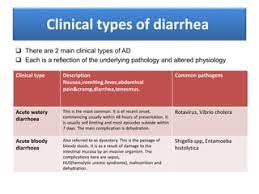- Get link
- X
- Other Apps
- Get link
- X
- Other Apps
The diarrhea is a typical issue with the stomach related framework that can influence individuals of all ages. It is portrayed by incessant bulging, stomach torment, and free or watery solid discharges that much of the time go with them. There are various sorts of looseness of the bowels, each with its own arrangement of signs and side effects. In this blog, we will examine the four most common sorts of loose motions and their causes.
1.Acute Diarrhea
The most prevalent type of diarrhea is acute, which is defined as diarrhea lasting less than two weeks. Typically accompanied by fever, nausea, and vomiting, it is usually brought on by a viral, bacterial, or parasitic infection. In addition to close contact with an infected person, contaminated food and water can spread acute diarrhea.
2.Chronic Diarrhea
Diarrhea that persists for more than four weeks is referred to as chronic diarrhea. It may be brought on by a variety of underlying conditions, such as celiac disease, inflammatory bowel disease, or persistent infections. Stress, food intolerances, and medication side effects are additional causes. Weight loss, fatigue, and dehydration are all possible side effects of chronic diarrhea.
3.Traveler's Diarrhea
Traveler's diarrhea is a specific type of acute diarrhea that affects people who are traveling to foreign countries, particularly in developing countries with poor sanitation. It is caused by consuming contaminated food and water, and is often accompanied by other symptoms of diarrhea such as fever, cramps, and nausea. Traveler's diarrhea can be prevented by practicing good hygiene and avoiding high-risk foods and drinks.
4.Functional Diarrhea
A type of chronic diarrhea known as functional diarrhea is unrelated to any underlying medical condition. Most of the time, it's because the gut is sensitive to certain foods, stress, or other things. People who have functional diarrhea typically have loose motion and feel the need to use the bathroom frequently. Stress management and avoiding trigger foods are frequently part of treatment.
In conclusion, a wide range of factors can result in diarrhea, a common digestive issue. Acute, chronic, functional, and traveler's diarrhea are the four most prevalent types of diarrhea. To determine the best course of treatment, it is essential to identify the type of diarrhea. While chronic diarrhea necessitates medical attention, acute diarrhea typically goes away on its own. Good hygiene can help prevent traveler's diarrhea, and changing one's lifestyle can often help treat functional diarrhea. For an accurate diagnosis and treatment plan, it is essential to consult a healthcare professional if you are experiencing diarrhea or other digestive symptoms.
- Get link
- X
- Other Apps

Comments
Post a Comment
If you have any doubts, Please let me know.